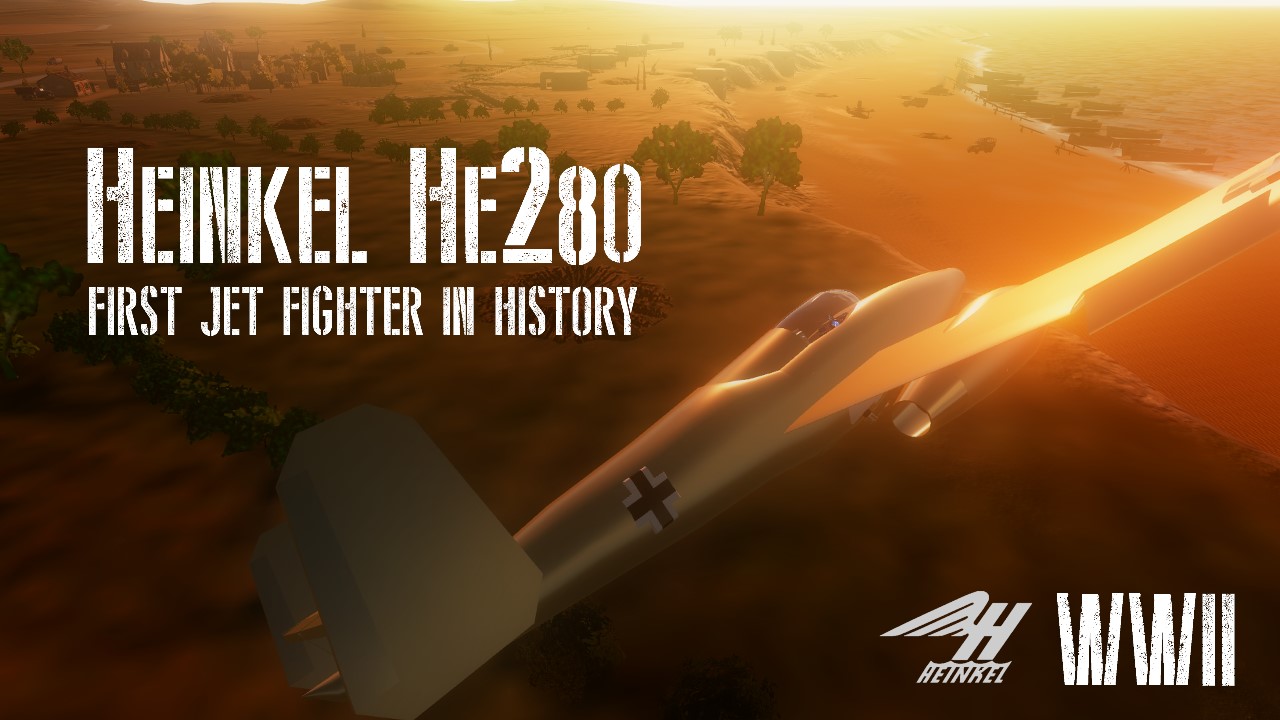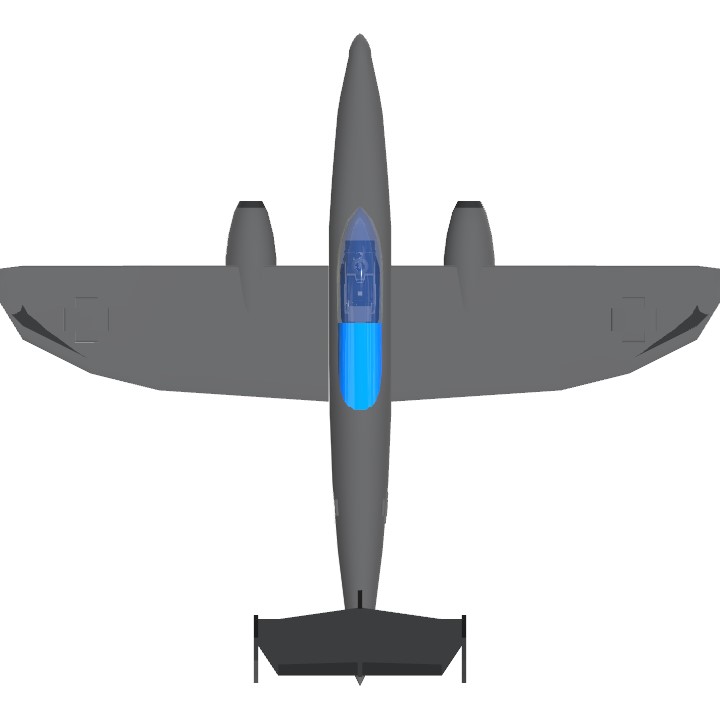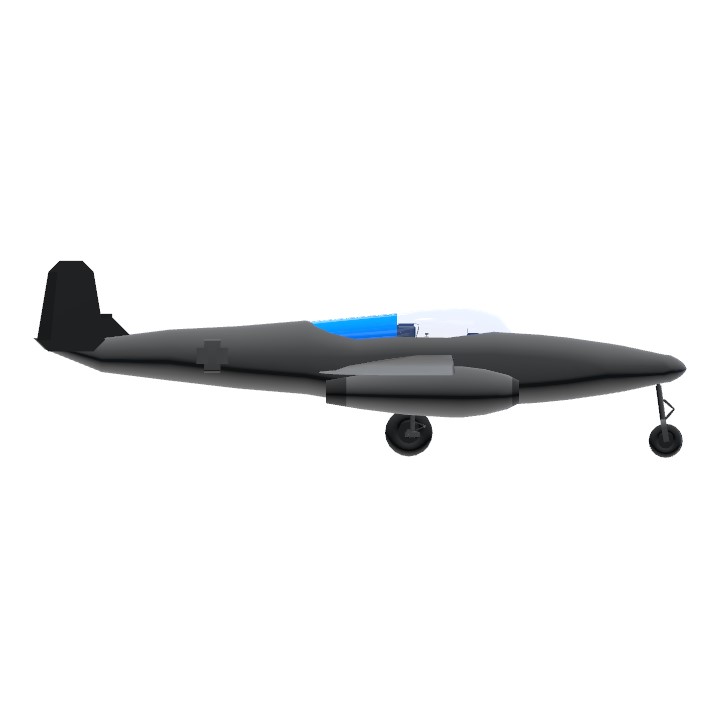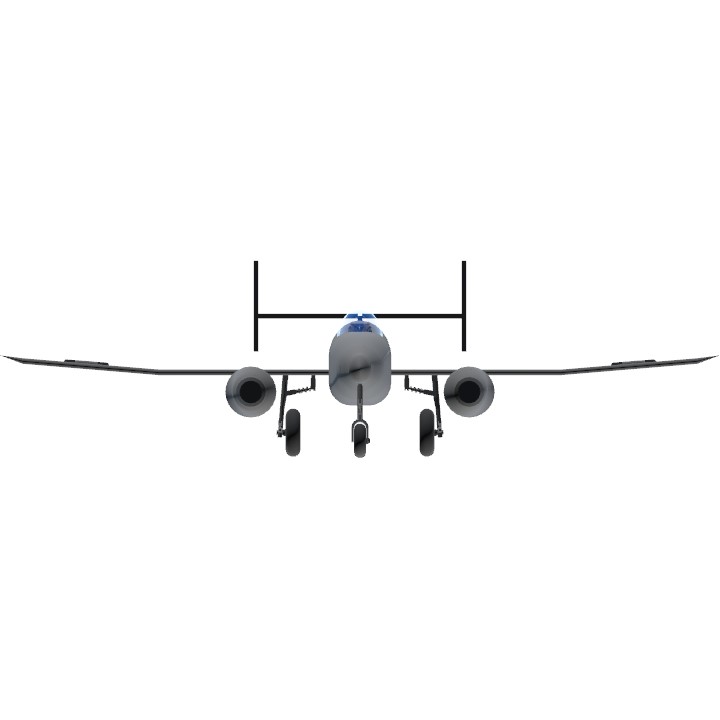Introduction:
The Heinkel He 280 holds a significant place in aviation history as it was the world's first jet-powered fighter aircraft. Developed by Ernst Heinkel Flugzeugwerke in the early 1940s, the project was a response to a German Air Ministry requirement for a high-speed fighter that could outperform traditional piston-engine fighters.
History:
Designed by Wolfgang Heinrich, the He 280 featured a sleek mid-wing configuration with swept-back wings, which was considered innovative at the time. It was powered by two Heinkel HeS 8 turbojet engines, enabling it to reach a top speed of approximately 520 mph (837 km/h).
On April 2, 1941, test pilot Erich Warsitz conducted the He 280's maiden flight, which showcased promising performance and demonstrated its potential as a formidable fighter aircraft.
Despite its successful test flights, the He 280 encountered various challenges during its development. Political and bureaucratic issues within the German Air Ministry, along with competition between different aircraft manufacturers vying for contracts, led to prolonged delays.
Furthermore, the He 280 faced tough competition from another German manufacturer, Messerschmitt, which was concurrently developing its own jet-powered fighter, the Messerschmitt Me 262. As delays persisted and setbacks plagued the He 280 program, the German Air Ministry shifted its focus to the Me 262, eventually leading to the latter becoming the more prominent jet fighter of World War II.
Real specifications:
Crew: 1 (pilot)
Length: 10.20 m (33 ft 6 in)
Wingspan: 12.00 m (39 ft 4 in)
Height: 3.30 m (10 ft 10 in)
Empty Weight: 4,500 kg (9,920 lb)
Maximum Takeoff Weight: 6,800 kg (14,991 lb)
Powerplant: 2 × Heinkel HeS 8 turbojet engines
Maximum Speed: Approximately 520 mph (837 km/h)
Range: Approximately 430 miles (690 km)
Service Ceiling: 35,000 ft (10,670 m)
First Flight: April 2, 1941
Designer's Note:
Because this never reached full scale production, I did not include any weapons. Also, there are not many records on the actual cockpit so the cockpit in this design does not match the actual one.
Specifications
Spotlights
- 210100 1.7 years ago
- WinsWings 1.7 years ago
- LunarEclipseSP 1.7 years ago
- ToeTips 1.7 years ago
General Characteristics
- Predecessor WW2 Jets Challenge 8/23 [CLOSED]
- Created On Windows
- Wingspan 52.0ft (15.8m)
- Length 47.2ft (14.4m)
- Height 14.1ft (4.3m)
- Empty Weight 16,461lbs (7,466kg)
- Loaded Weight 19,956lbs (9,052kg)
Performance
- Power/Weight Ratio 3.378
- Wing Loading 42.6lbs/ft2 (207.8kg/m2)
- Wing Area 468.9ft2 (43.6m2)
- Drag Points 5939
Parts
- Number of Parts 218
- Control Surfaces 6
- Performance Cost 1,183





@WinsWings Sorry for late reply, only just saw your comment. Yes they did have countermeasures (Chaffs) in WW2. In this plane, everything is accurate to the era, as far as I know.
@Jacob30x Thanks. Btw still want to do that collab challenge?
Heinkel: Look at our fighter! We're absolutely innova-
Messerschmitt:
@Pilotgoose Thank you too!
@windshifter1 congrats on getting gold, you really carried me to where I am today
@VittorVolotok @Jacob30x
@SPAircraftOfficial @DatRoadTrainGuy19 @CR929thenewSPplayer
@hfusiwjf29 @MrCopty @GuyFolk
@UssrLENIN @OrderlyHippo @Pilotgoose
@TheTomatoLover @AdmiralGelvain @LimeAir
@Michiganstatepolice @WinsWings nice
@LunarEclipseSP https://en.m.wikipedia.org/wiki/Timelineofjet_power check this out
@windshifter1 well, are you sure they got countermeasures in those days?
@WinsWings So FYI its not in the wrong era.
@WinsWings In the cockpit I put buttons for Nxt Tgt and Prev Tgt, as well as countermeasures (But I did not add any weapons because it is only prototypes) because turns out the germans were the first to invent chaffs and radar targeting, during WWII
@LunarEclipseSP yes, this one came before the Me262
Good job, thanks for joining
@windshifter1 good
@LunarEclipseSP This actually was the first to fly but me-262 was the first to make large scale production.
I thought Me-262 was the first
@WinsWings Submission 1.